Die Entwicklungstrends der Digitalisierung und Vernetzung bei Elektroventilen
RotorkRotork spricht über die Digitalisierung von elektrischen Ventilen
Rotork talks about the digitalization of electric valves
Rotork recently discussed the importance of digitalization to valve automation and control in the European Control Engineering magazine.
Industrial Internet of Things (IIoT) technology uses electronic devices such as sensors to collect and share data, and uses the computing power of cloud platforms to deeply mine and utilize data. This technology has spawned the gradual development of industrial process control towards networking and intelligence.
Modern technological innovation is no longer limited to the innovation of product functions; it is about how to save and utilize the data generated in the product application process to achieve faster and more appropriate system arbitration, thereby reducing time and money costs while improving the performance and safety of flow control systems.
The value of data provided by system digitalization cannot be overemphasized. However, in order to receive data, the site needs to be equipped with appropriate equipment that can retrieve useful information. When operating hundreds of valves on site, having an intelligent actuator that can provide advanced data logging capabilities is essential to a powerful digital asset management network. At this time, IoT platform software running on a cloud platform is required to ensure centralized monitoring and management of numerous electric actuators.
Bus-based distributed control systems (DCS) enable automation of flow control systems
Data communications are an essential component of modern actuators and electric valves. IoT control systems for valve actuators allow field operators to control operations at any time, 365 days a year, while monitoring up to 200+ actuators on a single fault-tolerant field network, and monitoring actuators over a range of up to 20 km without repeaters.
To meet these requirements, engineers incorporate field communication networks that enable plant equipment to be controlled and monitored via a distributed control system (DCS). For a distributed control system to operate effectively, it requires a master station. This provides the vital connection between field devices and the central DCS.
Master stations are typically available in single, dual or hot standby configurations. The single option provides redundant host connections and redundant field network loops, while the dual configuration sees two fully isolated, independent units installed side by side. The hot standby variant provides full redundancy, and every interface is replicated. In the event of a failure, switching to standby is seamless with no loss of data and control.
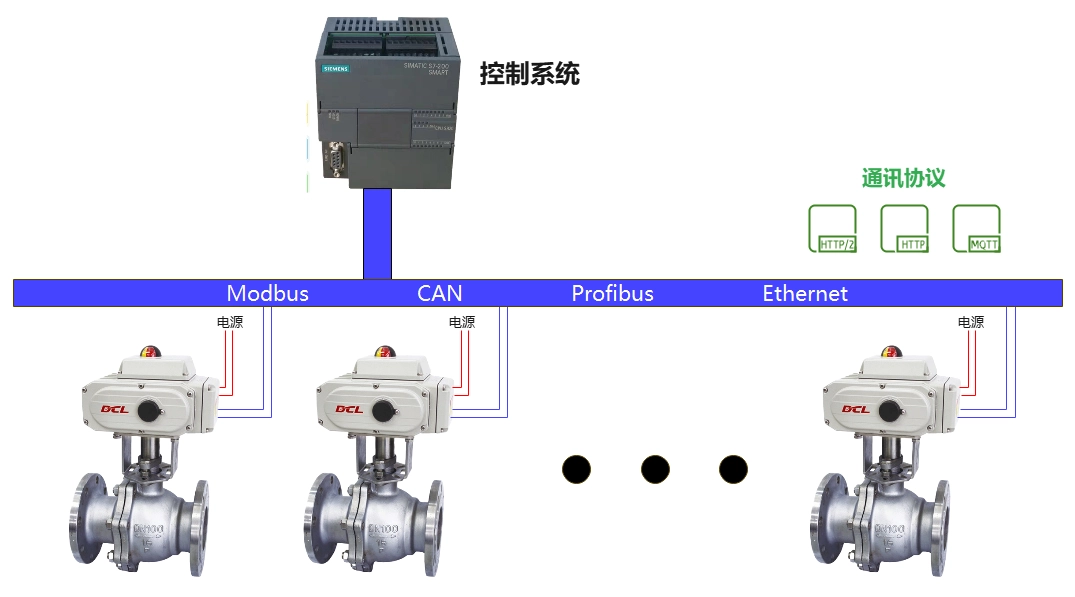
Cloud-based actuator IoT realizes the intelligence of flow control system
There are also great benefits to digital maintenance and management of assets through cloud-based actuator IoT system. The DCL actuator IoT system based on Alibaba Cloud can deeply calculate the action data and diagnostic data (torque, operation, temperature, etc.) stored in the electric actuator to analyze the performance of the actuator and the performance of the valve. Now you can retrieve and process this data in the most efficient way and present it in a streamlined UI interface. Therefore, operators can fully understand what is happening on site, thereby minimizing downtime and making faster and more informed decisions.
The digitization and networking of modern intelligent electric actuators provide simplified, safe and economical solutions for actuator application scenarios to support long-term operating efficiency and management of flow control equipment.
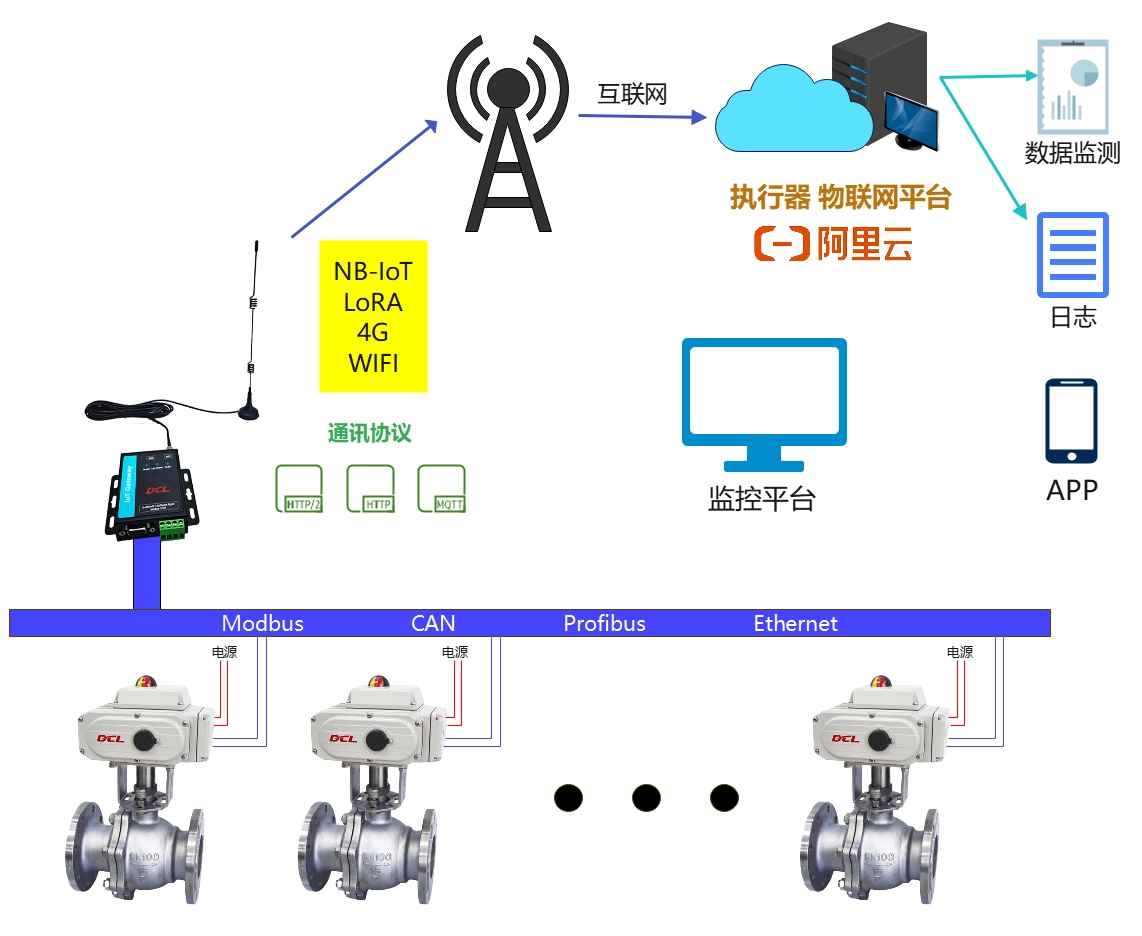

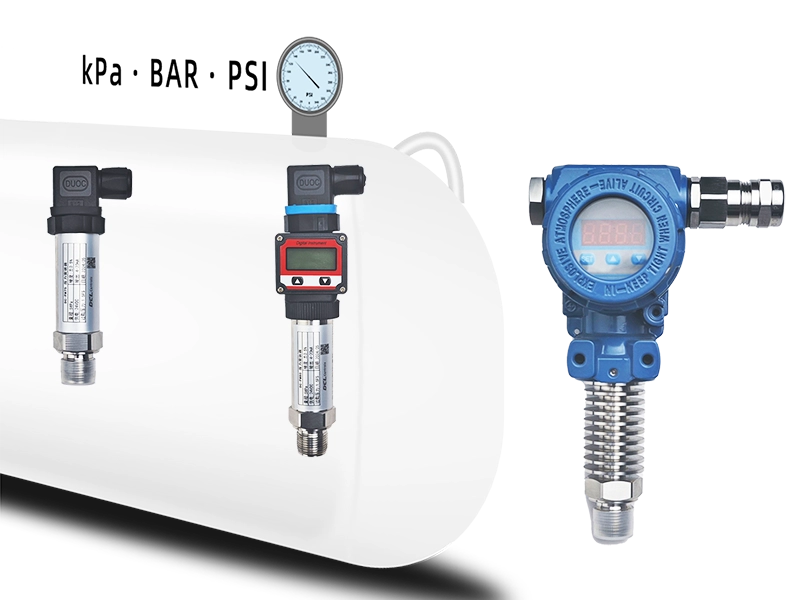
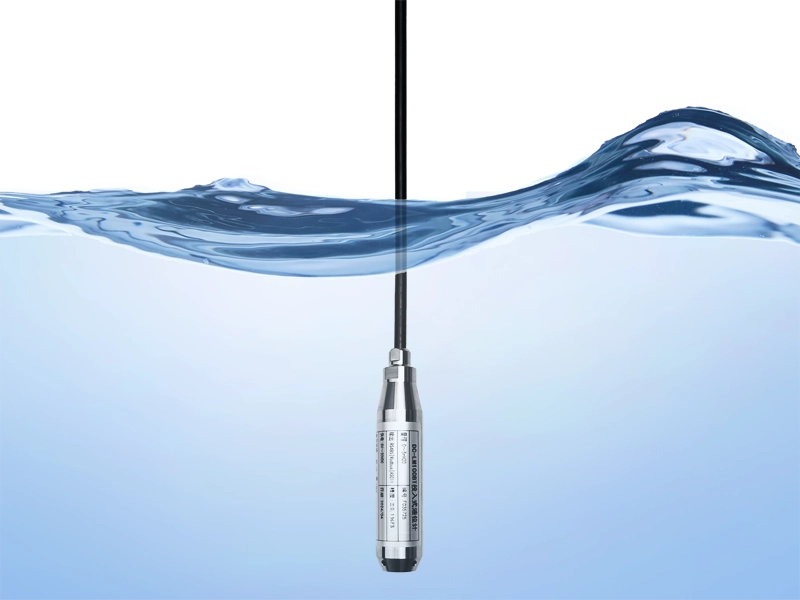





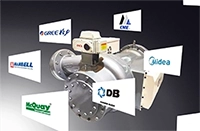


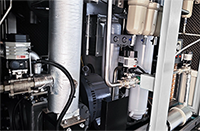
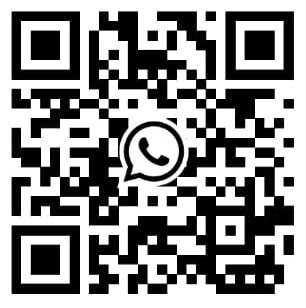


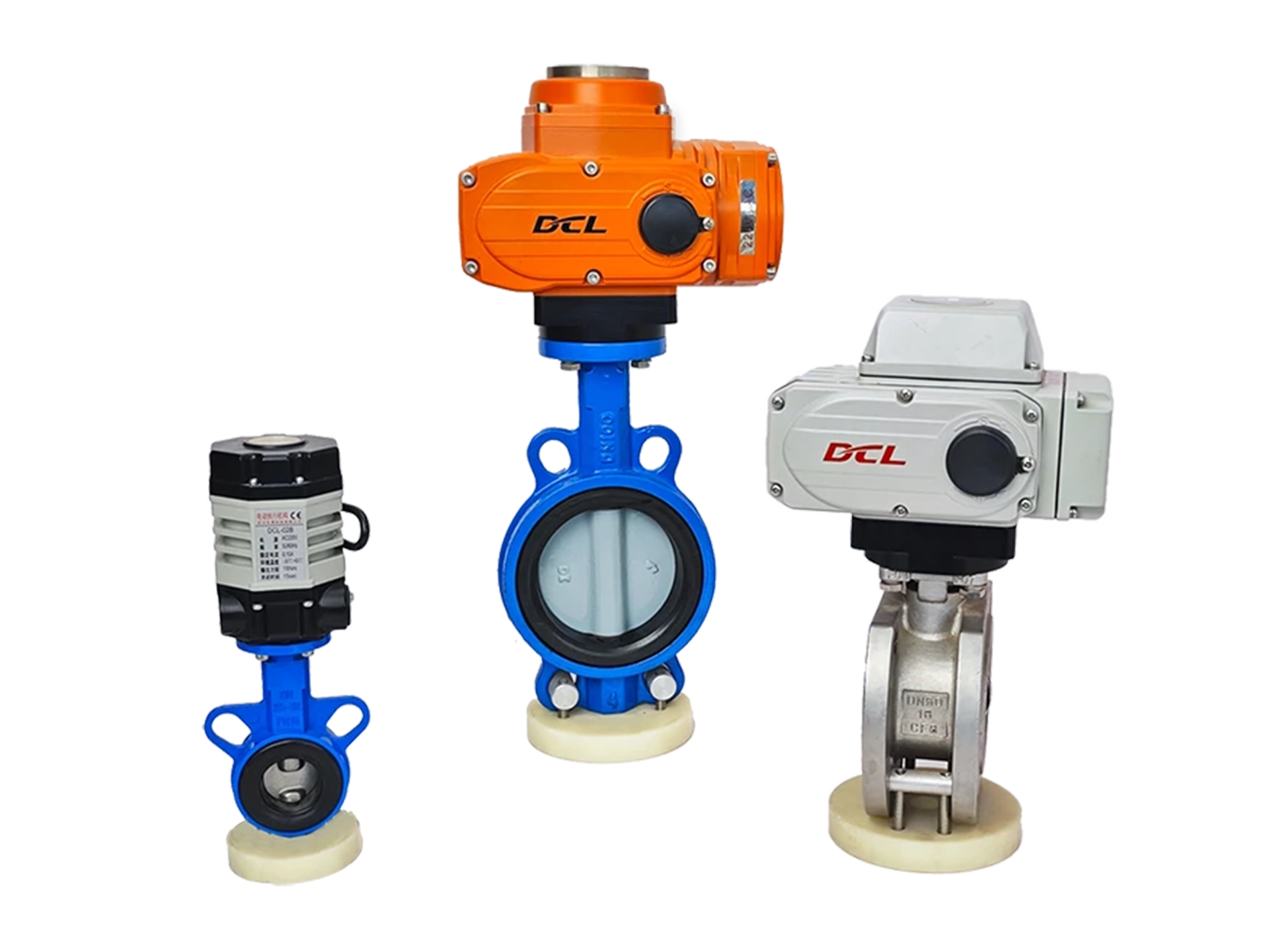












 鄂公网安备 42018502006527号
鄂公网安备 42018502006527号